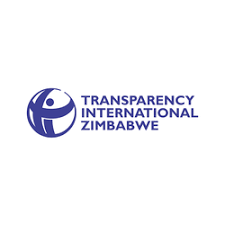
AT least 20% of Zimbabwe’s youth population has no interest in supporting government’s anti-corruption initiatives, while 35% has no general knowledge about what corruption entails, a study by Transparency International Zimbabwe (TIZ) has revealed.
The statistics should be a wake-up call to policymakers given that youth constitute 60% of the country’s population.
Last week , TI Z in partnership with the Zimbabwe Coalition on Debt and Development (ZIMCODD), Youth Empowerment and Transformation Trust (YETT) and the Southern African Parliamentary Support Trust (SAPST) hosted the 5th Youth Anti-Corruption Network Retreat in Harare.
The retreat focused on strengthening policy responses to the challenges posed by corruption, impunity, and patronage in Zimbabwe.
“This project goal is underpinned by three core objectives: to strengthen Zimbabwean youth’s knowledge, appreciation and adoption of a culture of integrity, honesty and ethics.
“To strengthen adherence to virtue, honesty and integrity amongst sub-national institutions that provide services to youth.
“To strengthen systems and mechanisms that support transparency and accountability efforts at the sub-national level by 2028,” TI Z said.
The retreat brought together young people from various organizations and diverse backgrounds with the aim of equipping them with relevant knowledge and skills necessary to become effective ambassadors for the anti-corruption movement.
- Dual economy Zim’s Achilles heel
- Belgian king, in shadow of colonial past, to visit DR Congo
- Chamisa party defiant after ban
- Gwanda accident victim seeks justice
Keep Reading
According to TI Z, one of the key objectives of the retreat was to inspire young people to take a more active role in combating corruption.
It also provided a platform for young people to connect with like-minded individuals and build networks that can support their anti-corruption efforts.
“In light of this, TI Zimbabwe hopes that this initiative will complement various efforts in the implementation of the National Anti-corruption Strategy (NACS II), which aims to establish networks of integrity in various institutions and sectors.
“Given that youth are essential to a nation's development, empowering and involving them in anti-corruption networks will be instrumental in fostering a culture of integrity, honesty, and ethics among Zimbabwean youth.”
Rudo Mukanganise, one of the participants from Epworth, said: “I have learnt about the institutional framework on anti-corruption issues that will broaden my understanding on corruption issues as corruption starts from grassroots level to institutional levels, hence I have also learnt to hold individuals of power and institutions accountable.”Tinashe Chidau, the programmes assistant from HumanKind/EatOut Africa said corruption tends to affect the marginalized as they are more vulnerable.
He said: “I have learnt that corruption cuts across class and gender lines, but women, children and youth are disproportionately affected by corruption as compared to their male counterparts and as such these groups continue to be the most vulnerable.”










